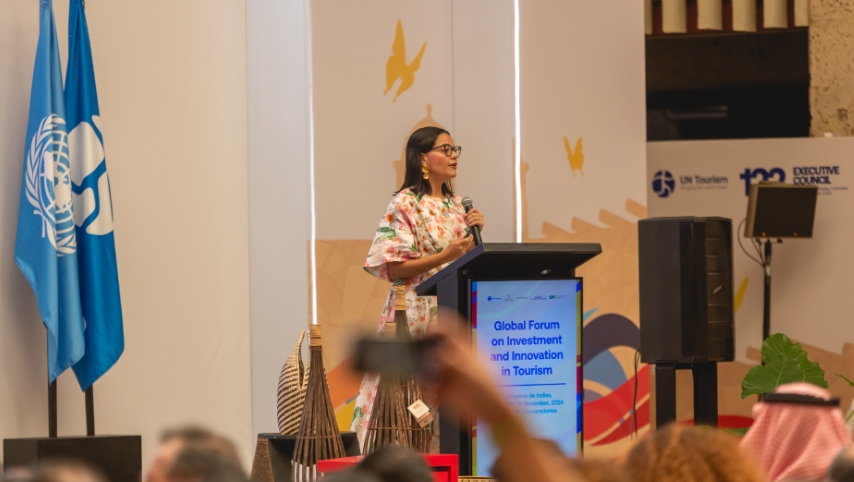Global Travel News
Global Greenfield Investment in Tourism Reflects Shift Toward Sustainability

The latest fDi Tourism Investment Report 2024 (“Global greenfield investment trends in tourism”), released by the Financial Times in collaboration with UN Tourism and with the support of the Diriyah Gate Company, offers an in-depth look at global greenfield investment trends in tourism, emphasizing recovery from the pandemic and outlining current developments.
According to the report, the tourism sector (international tourist arrivals and receipts) showed strong growth in 2023, with international tourism receipts already +3% up compared with the level of 2019 (a record high for the sector).
More and better-targeted investment will be key to transforming the tourism sector, creating jobs, and driving inclusive and sustainable growth.
Foreign investors announced a total of 1,943 FDI projects in the tourism cluster between 2019 and2023 according to fDi Markets, the greenfield investment monitor of the Financial Times. These projects garnered an estimated $106.7bn in capital investment and created an estimated 259,800 jobs. Even though tourism investments have not fully returned to pre-pandemic levels, the future of the sector looks positive.
Regional Highlights and Trends
The fDi Tourism Investment Report underscores the regional differences in FDI recovery within the tourism sector:
- Europe: Leading in global tourism FDI projects, Europe attracted 867 projects between 2019 and 2023, accounting for 44.6% of total global investment, highlighting its resilience in a cautious investment climate.
- Asia-Pacific: The number of tourism FDI projects in the region grew by 59.5% between 2022 and 2023, from 42 to 67, with capital investment rising by 125.3%, a positive sign taking into account that the Asia and the Pacific Region has just received 65.4% of the international tourist arrivals registered in 2019.
- Latin America and the Caribbean attracted 221 tourism FDI projects between 2019 and 2023. This resulted in $20.5bn in capital investment and approximately 73,400 jobs. As the region has already surpassed 2019 international tourist arrives levels, this gives a positive investor confidence in the region’s tourism sector’s long term profitability
- Middle East and Africa: Between 2019 and 2023, the Middle East and Africa recorded 314 tourism FDI projects, totalling an estimated $18.1bn in capital investment and creating approximately 40,700 jobs. The number of tourism FDI projects in the region increased by 16.1%between 2022 and 2023, from 62 to 72, with capital investment growing by 12.2%.
Sustainability and Innovation in Focus
The report identifies an increasing focus on sustainable tourism investments, as destinations leverage innovation and technology, including AI and blockchain, to reduce environmental impact while enhancing visitor experiences, and the growing involvement and appetite of sovereign wealth funds, as they believe that the long term future of the tourism sector looks positive and profitable.
A Call for Sustainable Growth
In light of the industry’s complex recovery, the fDi Tourism Investment Report 2024 advocates for quality over quantity in tourism. It suggests that diversification of destinations, implementation of eco-friendly policies, and advancements in sustainable infrastructure are essential for ensuring long-term growth in global tourism.
Jacopo Dettoni, Editor-in-Chief at fDi Intelligence, emphasized the significance of sustainable tourism, noting, “The world we live in has changed, and so must our approach to tourism. Climate change and resource management are reshaping how and where people travel, which calls for a responsible shift toward sustainable investments.”
UN Tourism Secretary-General Zurab Pololikashvili said: “The rise of new technologies and the need for greater sustainability are constantly impacting the tourism sector, presenting both opportunities and challenges that call for innovative approaches. More and better-targeted investment will be key to transforming the tourism sector, creating jobs, and driving inclusive and sustainable growth.”
UN Tourism Executive Director Natalia Bayona adds: “This report offers a comprehensive, data-backed perspective on the state of play in greenfield tourism investments, enabling policymakers and industry leaders to make sound, future-oriented decisions for sustainable growth. Investing in people, particularly younger generations, is key as the tourism industry employs more than 50% of the global workforce under the age of 25. As we move forward, our focus on innovation and strategic investments will adapt to the evolving needs of travellers, support community wellbeing, and ensure the sustainability of the sector and our planet.”












 Must Try Foods
Must Try Foods
 Gastronomy Cities
Gastronomy Cities
 Chef's Talk
Chef's Talk